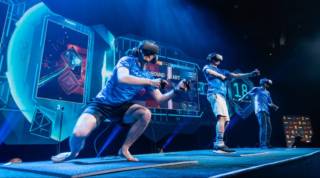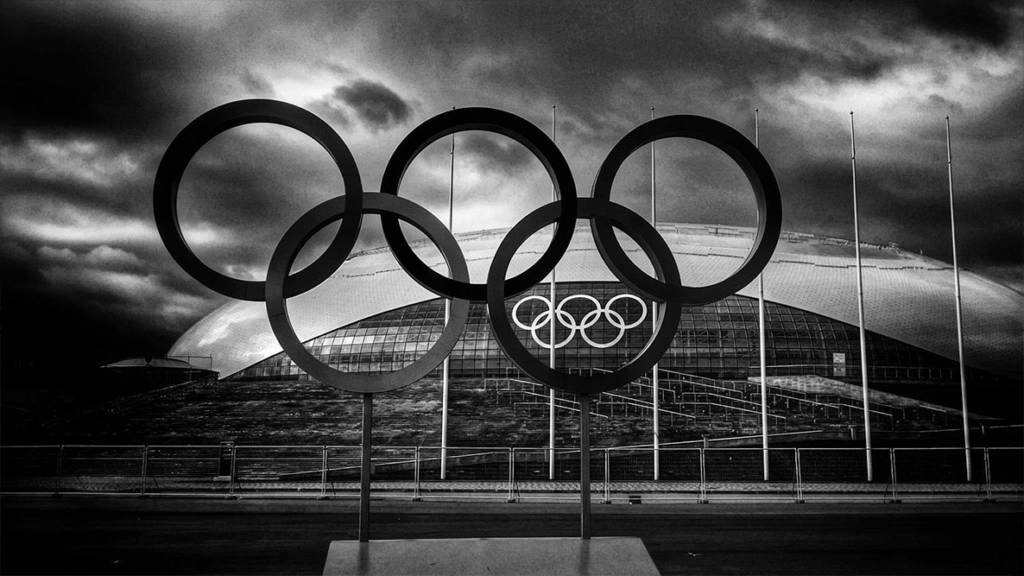Intel is one of the oldest brands to sponsor competitive gaming, having worked with ESL in its early days 15 years ago. Intel Extreme Masters (IEM) is in its 12th season, and Intel worked with ESL and competitive gaming before that global tournament even launched. Now the brand, which bridges the endemic and non-endemic worlds of marketing, is taking esports to the Olympics.
Although competitive gaming isn’t an official Olympic sport yet, esports will share center stage in PyeongChang, Korea ahead of the February 2018 Winter Games. Intel is extending its Intel Extreme Masters brand, produced in partnership with ESL, to the Olympics.
IEM PyeongChang will feature two competitions with Blizzard Entertainment’s sci-fi strategy title StarCraft II and Ubisoft’s winter sports game Steep: Road to the Olympics. Competitions are open to gamers from around the globe, which is a departure from typical IEM events that feature professional teams and gamers, but ties into the nature of the Olympic Games.
“We’re starting this Olympic partnership in Korea and we’re picking a game that resonates with the Korean audience,” John Bonini, vice president and general manager of esports and gaming at Intel, told AListDaily. “StarCraft is celebrating its 20th anniversary, which provides a nice storyline for the event.”
Bonini said the goal with bringing esports to the Olympic Games is to celebrate the competition across video gaming while introducing new audiences to competitive gaming.
“New audiences have probably heard a little bit about esports, but this format allows kids and parents and grandparents to learn about how the final 16 StarCraft II players made it through North America, Europe and China. There’s also the element of national pride with this tournament.”
Bonini said the fact that most people play games now also helps connect with a broader audience, as do the human stories behind the competition—a staple of traditional Olympic sports coverage.
“Having IEM and ESL involved brings more credibility to this event,” Bonini explained. “If you’re in the gaming community you know the IEM and ESL brands. We’re bringing high production quality to this competition. For those who aren’t currently gamers or esports fans, having Intel involved at the Olympics opens up an opportunity to entice a more mainstream audience.”
 Bonini admits that this first event in Korea is part of a big esports experiment.
Bonini admits that this first event in Korea is part of a big esports experiment.
“The IOC (International Olympic Committee) trusts us in advising what makes the most sense with esports,” Bonini said. “We have to see which works best and what connects with fans and take those learnings to the Tokyo Games.”
Intel is still finalizing details on how these esports competitions will be distributed to the world, although both traditional broadcasters (NBC has the Olympics exclusive) and digital platforms like Twitch are involved in those conversations.
Beyond the Intel Extreme Masters demonstration, Intel will set up Steep gaming kiosks throughout the Olympic Village for attendees and athletes to play.
IEM PyeongChang is an extension of Intel’s recently signed long-term worldwide The Olympic Partner (TOP) sponsorship with the International Olympic Committee, which focuses on Intel employing new technology to steer the future of the Olympics.
“Esports will be on the earlier side of the three-week marketing window, but that momentum will carry through the Winter Games when we feature 5G and our Core i7 technology,” Bonini said. “We’ll have VR technology experiences for fans to view the action in 360.”
In a way, Intel and ESL has turned the IEM Finals, which occur in Katowice, Poland every spring, into an esports Olympics in its own right.
“There were 170,000 people at IEM Katowice this year, and millions more watching it online. It has become its own phenomenon,” Bonini said. “It’s about pushing the envelope and trying new things, which is something we’re seeing a lot of in esports with Riot Games’ League of Legends and Activision Blizzard’s Overwatch League, which we’re a sponsor of as well.”

